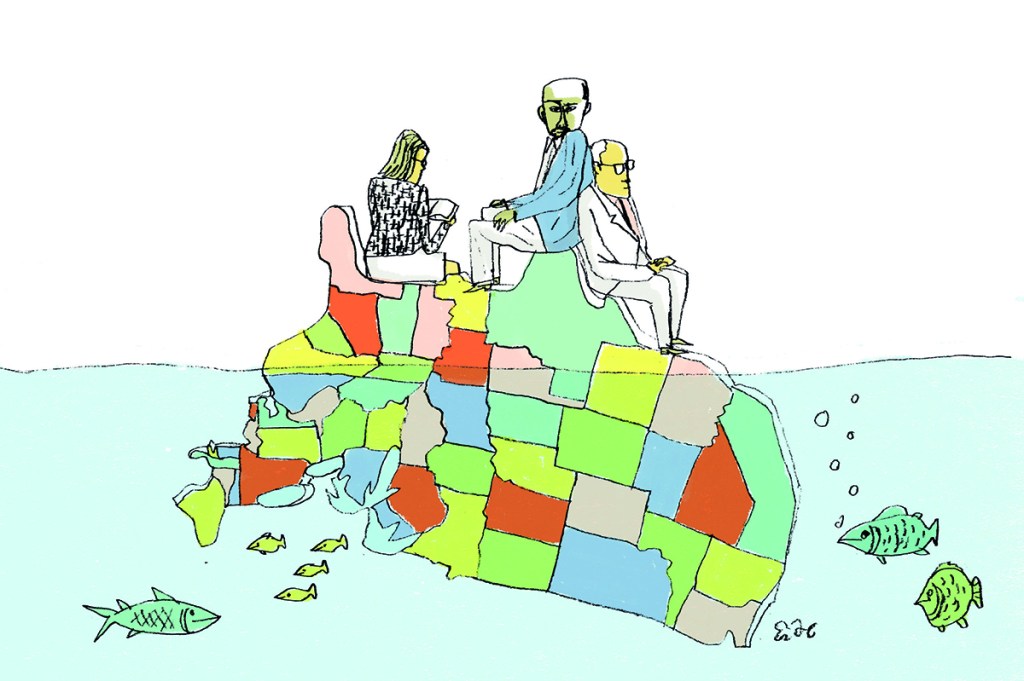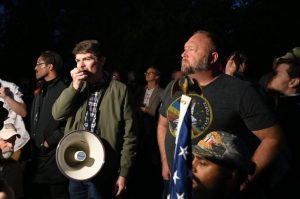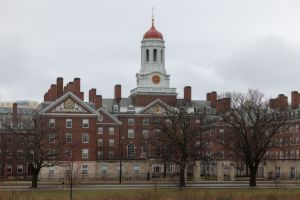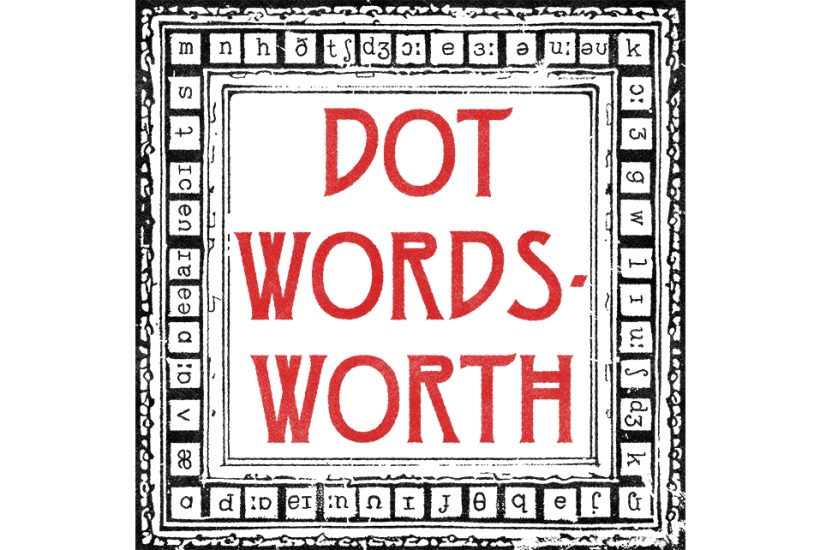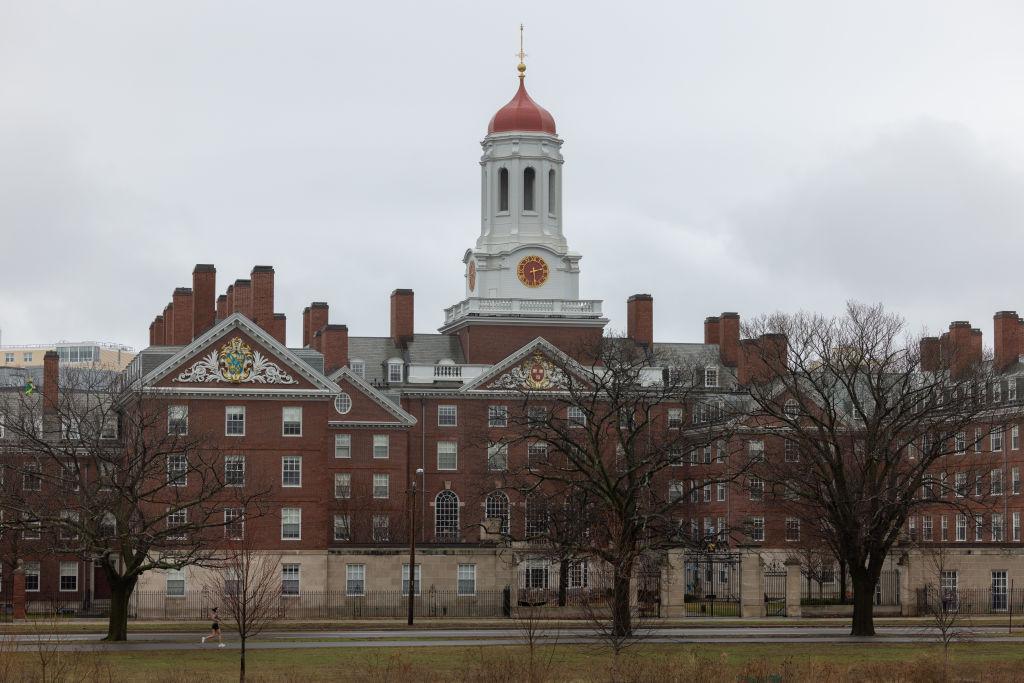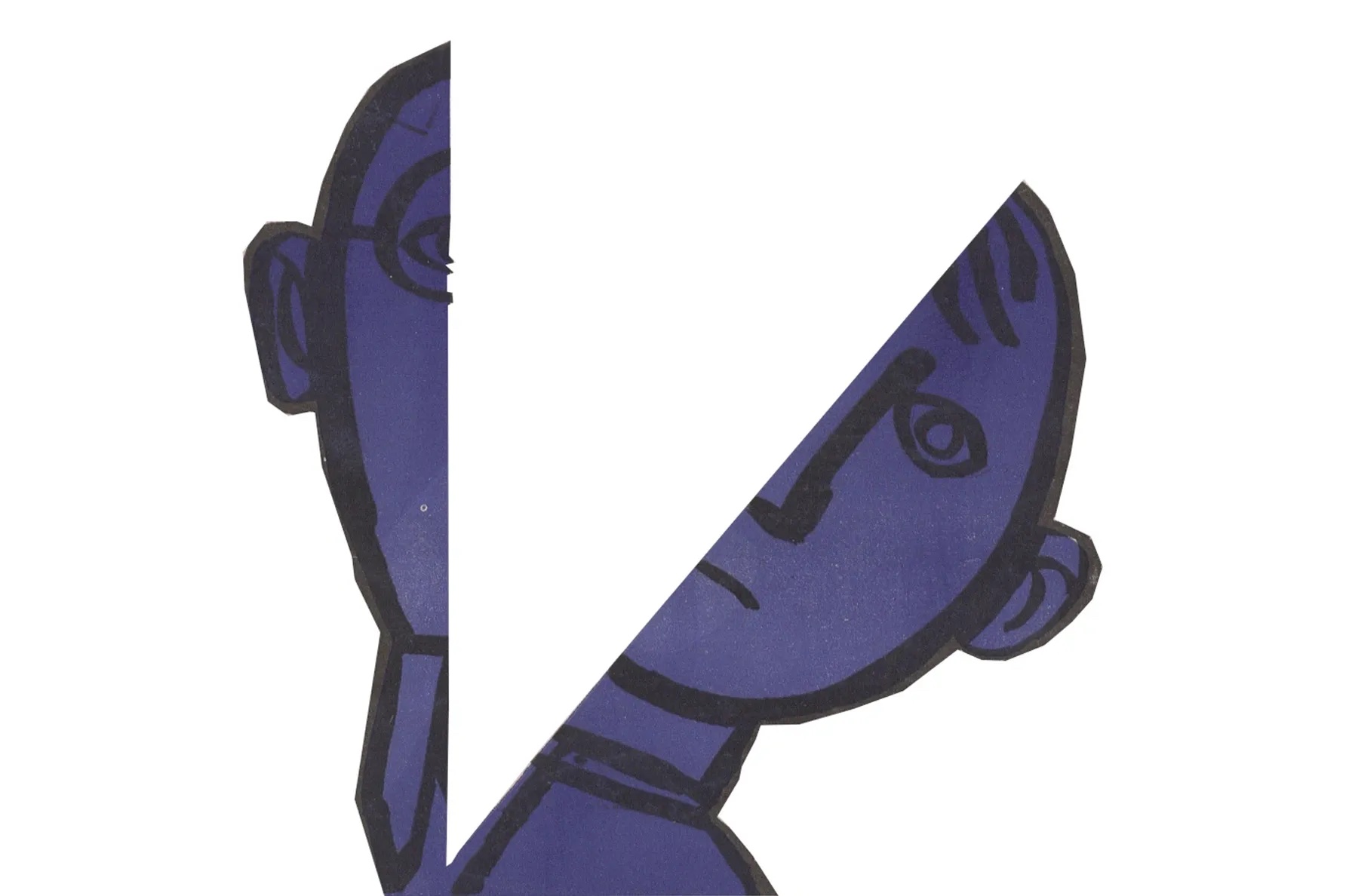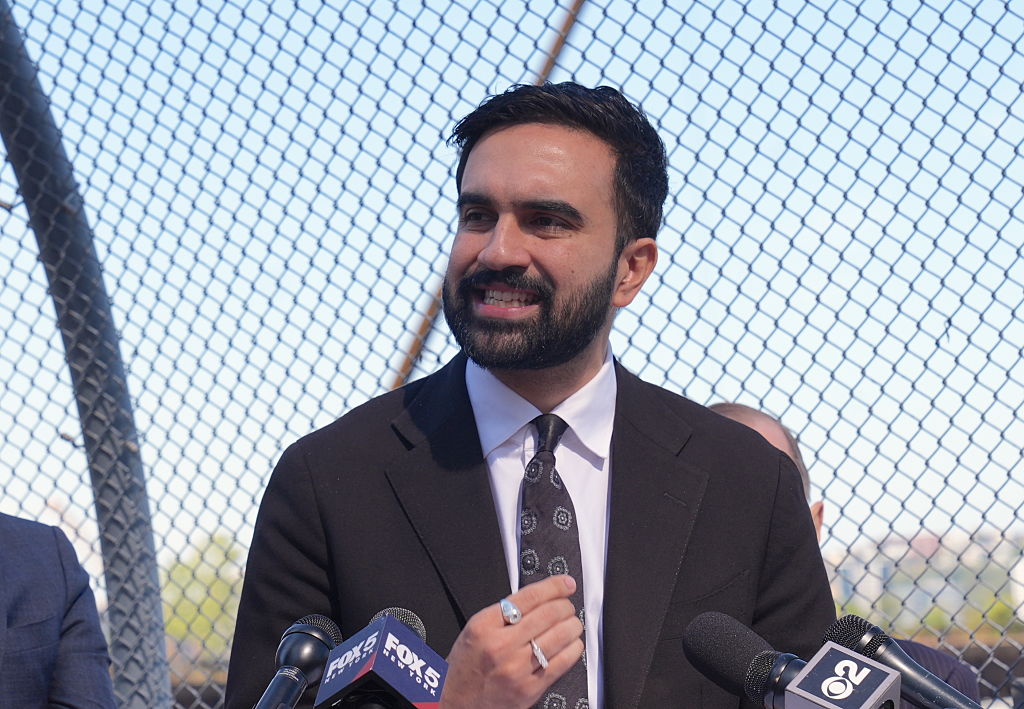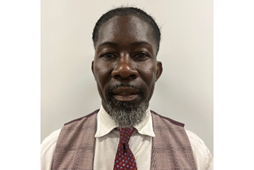What’s liberal about liberal arts education? That question is not easy to answer; for one thing, really to answer it you have to know what the word ‘liberal’ means. Has any word accumulated more conflicting meanings than ‘liberal’? Deciding what ‘education’ means is no simple task, either.
In my experience, the more you think about those simple words, the more elusive their meanings. According to James Madison, ‘liberty’ and ‘learning’ belong together. They ‘support’ each other, he says, and their connection supports a free society.
In various forms, the nexus between liberty and learning is a very traditional idea, with epistemological and existential as well as political dimensions. Aristotle begins the book we call Metaphysics with the observation that ‘all men by nature desire to know’. Aristotle thought that learning frees us from the snares of ignorance, illusion and mere appearance. Learning, he thought, not only depends upon but also begets certain freedoms.
In the Gospel according to St John, Jesus says that ‘you shall know the truth and the truth shall make you free’. In the Gospel, the relevant freedom is freedom from sin. But the point can be generalized. Various schools and colleges have adopted the saying as their motto — it is perhaps worth noting that the CIA liked the quotation so much that they had it etched into a wall of their headquarters. It is amusing to speculate what the author of that saying would make of this spooky application of his words.
The Greek word that the Evangelist John uses for ‘truth’ is ἀλήθεια (aletheia). Interestingly, it is a negative form: ἀ-λήθεια. Etymologically, it means not forgetful — in Greek mythology, the river Lethe is a fount of forgetfulness. Truth — ἀ-λήθεια — is the antidote to Lethe. Memory, in other words, is deeply implicated in the career of truth.
Let’s come back to the question: what is liberal about a liberal arts education? Those who’ve studied Latin know that the word comes from the Latin līber, ‘free’. The original reason that a liberal arts education was so prized was that it promised to free students from the rust of prejudice and presentism, the belief that the present moment is the summit of wisdom and enlightenment and that, accordingly, the past is nothing more than a graveyard of discredited and mostly malignant ideas. Is ‘liberal education’ still liberal in that sense?
Everyone knows George Santayana’s observation that he who is ignorant of the past is destined to repeat it. That is one reason we put such stock in education: we believe that it can help rescue us from making the same mistakes earlier generations made. But distance traveled is not necessarily progress logged. It was not so long ago that Cardinal Newman’s enumeration of the goals of a liberal arts education could have been taken as a motto by the American academic establishment. Newman said that the ‘chief objects’ of a university education were ‘a cultivated intellect, a delicate taste, a candid, equitable, dispassionate mind, a noble and courteous bearing in the conduct of life’. That educational ambition was quite normal in the 1850s.
Or consider the observation made by the philosopher John Searle that ‘the idea that the curriculum should be converted to any partisan purposes is a perversion of the ideal of the university’. The attempt to convert curriculum into an instrument of social transformation, he said — leftist, rightist, centrist, or something in between — is ‘the very opposite of higher education’. Until the day before yesterday, Searle’s warning was regarded as common sense. Now it is uncommon, and highly provocative, wisdom.
I am not suggesting that in the past our educational institutions always lived up to the ideal that Newman enunciated, or that they always avoided the perversion against which Professor Searle warned. But they aspired to. Indeed, until at least the mid-1960s there was robust agreement about the intellectual and moral goals of a liberal arts education even if those goals seemed difficult to achieve. There was, for example, a shared commitment to the ideal of disinterested scholarship devoted to the preservation and transmission of knowledge — which meant the preservation and transmission of a civilization — pursued in a community free from ideological intimidation. If we inevitably fell short of the ideal, the ideal nevertheless continued to command respect and to exert a guiding influence.
The truth is that despite widespread concern about the fate of higher education, and despite many and various efforts to call attention to and remedy the situation, the reality is in many ways far graver today than it was in the 1970s and 1980s when exotic phenomena such as Afrocentrism, postcolonial studies, queer theory, critical legal studies and the attack on science by anti-humanistic humanists were just beginning to gather steam. And despite the rise of alternative voices here and there, those dominating the discussion at most institutions are committed to discrediting the traditional humanistic ideals of liberal education by injecting politics into the heart of the educational enterprise.
Consider the phenomena of ‘multiculturalism’ and political correctness. (I use scare quotes because what generally travels under the name of ‘multiculturalism’ is really a form of monocultural animus directed against the dominant culture.) The multiculturalists claim to be fostering a progressive cultural cosmopolitanism distinguished by superior sensitivity to the downtrodden and dispossessed. In fact, they encourage an orgy of self-flagellating liberal guilt as impotent as it is insatiable.
Hence the woke sensitivity of the multiculturalist is an index not of moral refinement but of moral vacuousness. Multiculturalism is a paralyzing intoxicant: its thrill centers around the emotion of superior virtue; its hangover subsists on a diet of ignorance and blighted good intentions.
The crucial thing to understand about multiculturalism is that, notwithstanding its emancipationist rhetoric, it is not about recognizing genuine cultural diversity or encouraging pluralism. It is about undermining the priority of western liberal values in our educational system and in society at large. In essence, as the political scientist Samuel Huntington pointed out, multiculturalism is ‘anti-European civilization’. It is, said Huntington, ‘basically an anti-western ideology’.
The most ironical aspect of this whole spectacle is that what appears to its adherents as bravely anti-western is in fact part of the West’s long tradition of self-scrutiny. Indeed, criticism of the West has been a prominent ingredient in the West’s self-understanding at least since Socrates invited his fellow Athenians to debate with him about the nature of the good life. No civilization in history has been as consistently self-critical as the West. In attacking Western civilization, the multiculturalist is also attacking the liberating spirit of self-scrutiny, replacing it with fashionable dogmas of indoctrination.
Anti-Americanism occupies such a prominent place on the agenda of the culture wars precisely because the traditional values of American identity — articulated by the Founders and grounded in a commitment to individual liberty, limited government and public virtue — are deeply at odds with the radical, de-civilizing tenets of the multiculturalist enterprise of political correctness. A profound ignorance of the milestones of American (or any other) culture is one predictable result.
The statistics have become proverbial. Huntington quotes one poll showing that while 90 percent of Ivy League students could identify Rosa Parks, only 25 percent could identify the author of the words ‘government of the people, by the people, for the people’. Another survey revealed that 40 percent of seniors at 55 top colleges could not say within half a century when the Civil War was fought. The erosion of shared memory is such a potent tool of tyranny because it dissolves those links with the past that give substance to liberty. The Founding Father James Wilson was right when he observed that ‘law and liberty cannot rationally become the object of our love unless they first become the objects of our knowledge.’ We must know the past in order to profit from its lessons.
It almost goes without saying that the tenured or soon-to-be-tenured radicals now controlling nearly all of the most prestigious humanities departments in this country reply that their critics have overstated the case. Really, they say, there is nothing amiss, nothing has happened that need concern parents, trustees, alumni, government or private funding sources. On the issue of enforcing politically correct behavior on campus, for example, they will assure you that the whole thing has been overblown by ‘conservative’ journalists who do not sufficiently admire multiculturalism and cannot appreciate that the free exchange of ideas must sometimes be curtailed for the higher virtue of protecting the feelings of designated victim groups. And the curriculum, they will say, has not been politicized, it has merely been democratized, opened up to reflect the differing needs and standards of groups and ideas hitherto insufficiently represented in the academy.
The aim of such objections is not to enlighten or persuade but to intimidate and preempt criticism. The truth is that what we are facing today is nothing less than the destruction of the fundamental premises that underlie our conception both of liberal education and of a liberal democratic polity. Respect for rationality and the rights of the individual; a commitment to the ideals of disinterested criticism and color-blind justice; advancement according to merit, not according to sex, race, or ethnic origin: these quintessentially Western ideas are bedrocks of our political as well as our educational system. And they are precisely the ideas that are now under attack by progressive academics intoxicated by the coercive possibilities generated by their self-infatuated embrace of political correctness.
Political correctness also fosters an atmosphere of intimidation and encourages slavish moral and intellectual conformity, attacking the very basis for the free exchange of ideas. Even worse, it encourages a kind of intellectual sentimentality that makes it difficult to acknowledge certain unpalatable realities — the reality, for example, that not all cultures, or indeed all individuals, are equal in terms of potential or accomplishment. It insinuates that dreadful ‘lie in the soul’ that Socrates warned about in The Republic.
Politics, as the late Andrew Breitbart once observed, is downstream from culture. In the United States, a primary engine of culture is the educational establishment. Since the late 1960s, it has been anything but an ivory tower, that quiet, semi-cloistered redoubt deliberately subsisting at one remove from partisan passions. On the contrary, the educational establishment — and this goes for primary and secondary education as well as for colleges — has incorporated partisan passions as part of its raison d’être.
The chief question is this: should our institutions of higher education be devoted primarily to the education of citizens, or should they be laboratories for social and political experimentation? Traditionally, a liberal arts education involved both character formation and learning. The goal was to produce men and women who (as Allan Bloom put it) had reflected thoughtfully on the question ‘What is man?’ in relation to his highest aspirations as opposed to his low and common needs’. In recent decades, however, colleges and universities have more and more been home to what Lionel Trilling called the ‘adversary culture’ of intellectuals. The goal is rejection and repudiation, not reflection.
The key issue, I hasten to add, is not partisan politics per se but rather the subordinating of intellectual life to non-intellectual — that is, political — imperatives. Indeed, it is this failure to check the colonization of intellectual life by politics that stands behind and fuels the degradation of liberal education. The issue is less the presence of bad politics than the absence of non-politics in the intellectual life of the university.
What has happened to the educational establishment cannot be understood apart from its cultural context — the ‘long march through the institutions’ that Gramsci recommended and whose American lineaments I chronicled in my book, The Long March: How the Cultural Revolution of the 1960s Changed America:
‘The Age of Aquarius did not end when the last electric guitar was unplugged at Woodstock. It lives on in our values and habits, in our tastes, pleasures and aspirations. It lives on especially in our educational and cultural institutions, and in the degraded pop culture that permeates our lives like a corrosive fog.’
We have been seeing the results of this dissemination everywhere: in the media; in corporate boardrooms where resolutions deploring ‘systemic racism’ are touted by quivering, virtue-signaling bureaucrats; throughout the federal government, where ‘workshops’ on critical race theory catechize government workers about the evils of ‘whiteness’ and glories of ‘trans’ culture; and on our city streets, where in 2020 Antifa and the ‘trained Marxists’ of Black Lives Matter rampaged under the protection of the First Amendment while endeavoring to destroy the political culture that underwrites such protections.
It is a great irony that the ‘free speech movement’ which began in 1964 in the tumult of Berkeley has mutated into something close to its opposite: an anti-free-speech movement that approaches opinions with which it disagrees by attempting to ‘cancel’ them. It is not uncommon, on our nation’s campuses, to find academics decrying academic freedom in the name of a putatively higher virtue. At many institutions, ‘liberal education’ has mutated into intolerant indoctrination. A similar process of mutation or reversal has been at work throughout the so-called liberal institutions of Western societies: in corporate board rooms no less than in the media, government bureaucracies and such cultural institutions as museums. Indeed, the metastasis of illiberal liberalism beyond the protected purlieus of academia is one of the signal cultural deformations of our time. What it tokens is nothing less than the potential eclipse of that robust understanding of liberal society that has informed the self-understanding of Anglosphere society from the time of Runnymede and the adoption of Magna Carta. At its core stand the ideals of free speech, religious liberty and equality before the law. The repudiation of such values — and of the value of limited government, which is a political precondition for their thriving — has underwritten the redefinition of ‘liberalism’ from ‘the championship of freedom’ to ‘illiberal politically correct conformity’.
Free speech does not exist in isolation; it is part of that constellation of freedoms that includes, for example, freedom of conscience and the freedom implicit in the idea that all are equal before the law. Those freedoms are, or were, bedrock principles in the modern secular West, but increasingly they are up for grabs in a situation where dissent from orthodoxy is met not with disagreement but with efforts at suppression, scapegoating and ostracism: the entire armory of so-called ‘cancel culture’.
It is worth noting, too, how many new disciples of intolerance begin by proclaiming their allegiance to freedom only to redefine it out of existence. ‘Freedom of speech is one thing,’ said one such campaigner, ‘but usage of your freedom should not be to offend others or advocate hate speech or provoke people to violence.’ Note that little word ‘but’. Freedom of speech is one thing, but…But what?
A common marker in this debate is the phrase ‘hate speech’. We’re supposed to say ‘yes’ to free speech but deplore ‘hate speech’ — speech, as one partisan of this milquetoast version of free speech put it, that ‘offends or insults in general’. The law has long had statutes against speech that incites violence or imperils public order — gratuitously crying ‘fire’ in a crowded theater, for example. But the phrase ‘hate speech’ is like that other item in the lexicon of leftist redress, ‘social justice’. It is a weapon masquerading as a moral imperative. The adjective is cognitively empty but emotionally charged: it injects an intoxicating dose of moral self-righteousness that clouds the head even as it sets the heart aflutter.
The larger issue here is one that has bedeviled liberal societies ever since there were liberal societies: namely, that in attempting to create the maximally tolerant society, we also give scope to those who would prefer to create the maximally intolerant society. It’s the old Leninist credo in action: demand freedom, toleration and diversity when out of power; practice suppression, control and elimination of opponents when in power.
It is a curious phenomenon. Liberalism implies openness to other points of view, even (it would seem) to those points of view whose success would destroy liberalism. Extending tolerance to those points of view is a prescription for suicide. But intolerance betrays the fundamental premise of liberalism, namely, openness. As Robert Frost once put it, a liberal is someone who is too broadminded to take his own part in an argument.
The escape from this disease of liberalism lies in understanding that ‘tolerance’ and ‘openness’ must be limited by positive values if they are not to be vacuous. American democracy, for example, affords its citizens great latitude, but great latitude is not synonymous with the proposition that ‘anything goes’. Allan Bloom put it well. ‘The fact,’ he wrote in The Closing of the American Mind, ‘that there have been different opinions about good and bad in different times and places in no way proves that none is true or superior to others.’
Our society, like every society, is founded on particular positive values — the rule of law, for example, respect for the individual, religious freedom, the separation of church and state. Or think of the robust liberalism expressed by Sir Charles Napier, a British commander in India in the mid-19th century. Told that immolating widows on the funeral pyres of their husbands was a cherished local custom, Napier said ‘My nation has also a custom: when men burn women alive, we hang them and confiscate all their property. My carpenters shall therefore erect gibbets on which to hang all concerned when the widow is consumed. Let us all act according to national customs.’
The point is that the ‘openness’ that liberal society rightly cherishes is not a vacuous openness to all points of view: it is not ‘value neutral’. It need not, indeed it cannot, say yes to all comers, to the Islamofascist who after all has his point of view, just as much as the soccer mom has hers. Western democratic society is rooted in a particular vision of what Aristotle called ‘the good for man’.
The question is: do we, as a society, still have confidence in the animating values of the vision? Do we possess the requisite will to defend them? Or was Jean-François Revel right when he said that ‘democratic civilization is the first in history to blame itself because another power is trying to destroy it’? The jury is still out on those questions. How they are answered will determine the future not only of Western universities but also of that astonishing spiritual-political experiment that is Western democratic liberalism.
That liberalism is embodied in the virtues of disinterestedness and impartiality, the unbiased discernment of truth. It is symbolized, for example, by the image of Justice adorning our courthouses, blindfolded and holding a scale to declare her allegiance to law, not men. It is implicit in Martin Luther King Jr’s observation that what matters is not the color of our skin but the content of our characters.
The entire premise of ‘Black Lives Matter’ is antithetical to the aspirations of equality in King’s hopeful sense. Indeed, with its angry codicil that asserting ‘All Lives Matter’ is racist and therefore impermissible, the BLM movement is an inversion of King’s message, just as it is an affront to the ideal of impartiality on which the rule of law depends.
But the attack on that ideal long predates the BLM movement. It is woven deeply into the culture of repudiation that fueled the radicalism of the 1960s and undermined the humanistic tradition that, once upon a time, our universities existed to foster and hand down. The cultural critic Christopher Lasch diagnosed it with great clarity in his posthumously published book, The Revolt of the Elites:
‘A misplaced compassion degrades both the victims, who are reduced to objects of pity, and their would-be benefactors, who find it easier to pity their fellow citizens than to hold them up to impersonal standards, attainment of which would entitle them to respect.’
Lasch, old-fashioned liberal that he was, understood that embracing democracy does not entail a debasement of standards. Equality, rightly understood, requires respect for impartial canons of achievement. This insight lay at the center of Matthew Arnold’s Culture and Anarchy.
‘Culture,’ as Arnold regarded it, ‘does not try to teach down to the level of inferior classes…It seeks to do away with classes; to make the best that has been thought and known in the world current everywhere.’ Hence it is, Arnold wrote, that ‘the men of culture are the true apostles of equality. The great men of culture are those who have had a passion for diffusing, for making prevail, for carrying from one end of society to the other, the best knowledge, the best ideas of their time.’ Today, of course, the contention that some ideas are better than others — let alone that some deserve to be called ‘the best’ — is rejected as an elitist crime against ‘diversity’.
The cult, the ideology of diversity — what we have baptized as ‘identity politics’, which represents the systematic rejection of everything connected with impartiality and objective, impersonal standards — is the enabling presupposition of the destructive cauldron of racialist obsession in which our society is now marinating.
The irony is that our current intolerance is the perverted progeny of the primary liberal value of openness. It used to be, as Allan Bloom noted, that openness was ‘the virtue that permitted us to seek the good by using reason. It now means accepting everything and denying reason’s power. The unrestrained and thoughtless pursuit of openness,’ he concludes, ‘has rendered openness meaningless.’
If you doubt this, you could tune in to the evening news and listen to fancy people explain why destroying someone else’s property is not violence, while keeping one’s own counsel and refusing to join the mob in ritual orgies of denunciation and self-abasement is.
A couple of concluding observations: in Notes Towards the Definition of Culture, T. S. Eliot noted that ‘culture is the one thing that we cannot deliberately aim at. It is the product of a variety of more or less harmonious activities, each pursued for its own sake.’
‘For its own sake.’ That is one simple idea that is everywhere imperiled today. When we plant a garden, it is bootless to strive directly for camellias. They are the natural product of our care, nurture and time. We can manage that when it comes to agriculture. When we turn our hands to cultura animi, the cultivation of the soul, we seem to be considerably less successful.
Let me end by noting that the opposite of ‘conservative’ is not ‘liberal’ but ‘ephemeral’. Russell Kirk once observed that he was conservative because he was liberal, that is, committed to freedom. Kirk’s formulation may sound paradoxical, but it touches on a great truth. To be conservative: that means wanting to conserve what is worth preserving from the ravages of time and ideology, evil and stupidity, so that freedom may thrive. In some plump eras the task is so easy we can almost forget how necessary it is. At other times, the enemies of civilization transform the task of preserving our culture into a battle for survival. That, I believe — and I say it regretfully — is where we are today.
This essay is an edited version of a speech given at Hillsdale College on January 31, 2021. This article was originally published in The Spectator’s September 2021 World edition.



